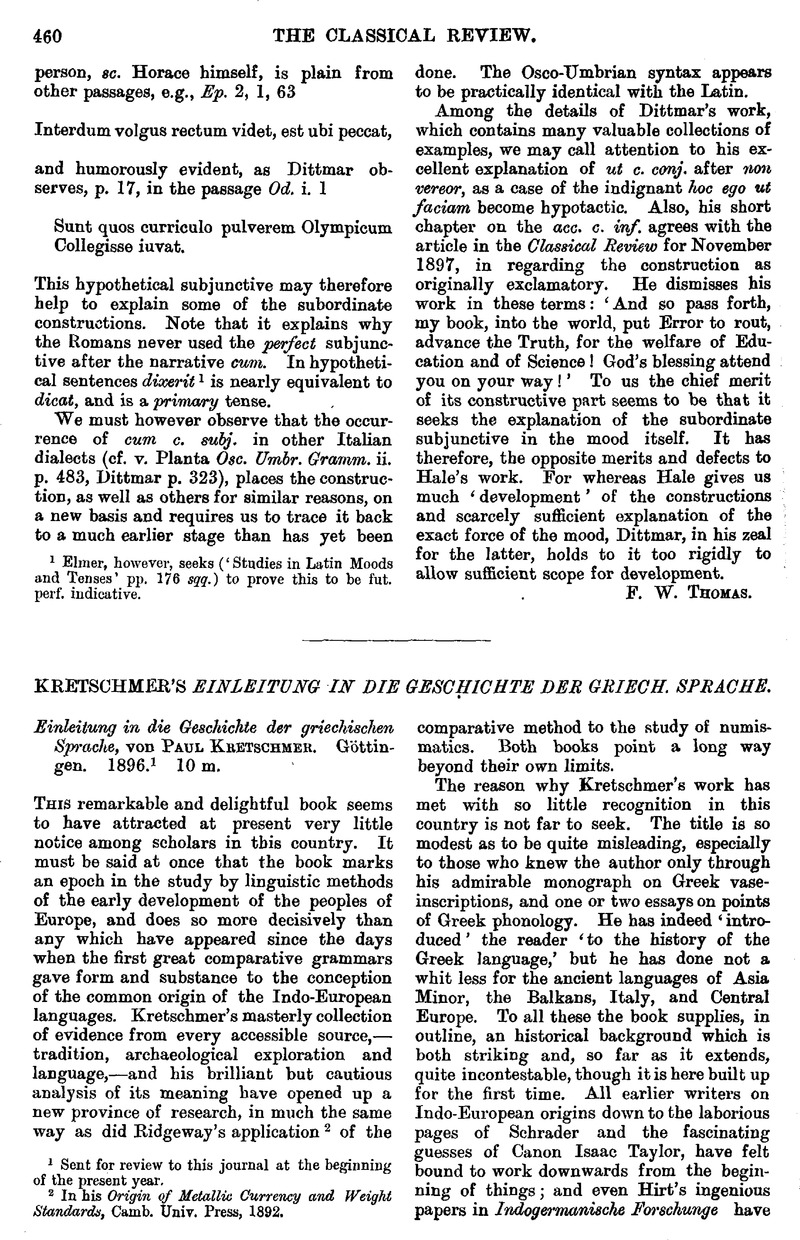No CrossRef data available.
Published online by Cambridge University Press: 27 October 2009

page 460 note 1 Sent for review to this journal at the beginning of the present year.
page 460 note 2 In his Origin of Metallic Currency and Standards, Camb. Univ. Press, 1892.Google Scholar
page 461 note 1 It is perhaps hardly necessary to state that Aryan is used in the now established sense of Indo-Persian.
page 461 note 2 Some of the more striking of the rest are caesaries: Skt. kēsara-, res: Skt. rās-, castus: Skt. sistas, rus: Zd. ravanh-, prdbus: Skt. pra-bhu-, erus: Zd. anhu-.
page 461 note 3 This chapter concludes with a rather grudging recognition of the importance of conquest by alien races as a cause of phonetic changes, on which Hirt has laid stress. Yet Kretschmer seems to be convinced that nothing else can account for the ‘ sound-shifting’ by which the original ‘mediae’ [voiced or voiceless?] became ‘ tenues’ in Germanic.
page 462 note 1 Whence, through ![]() , it came to denote f in the Faliscan alphabet, just as F did, through
, it came to denote f in the Faliscan alphabet, just as F did, through ![]() , in the Roman.
, in the Roman.
page 462 note 2 Also Nuceria Alfaterna and Capua It. Dial. pp. 463 and 525.